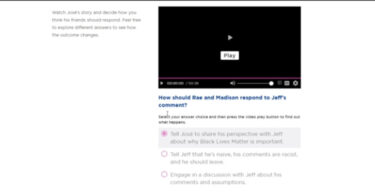NSA, DIA and the intelligence arms of the military services are part of the US Intelligence Community.
By John Gentry | American Thinker
“Diversity, Equity, and Inclusion” (DEI) policies are not only ethically controversial features of modern life, they damage key American institutions.
My new book on the impact of DEI on U.S. intelligence agencies demonstrates conclusively that DEI has seriously damaged the operational performance of U.S. intelligence agencies, thereby endangering national security.
This is the first major study of the national security intelligence implications of DEI policies. Details differ but root causes and main negative influences are similar to the problems DEI policies have caused in business, the Defense Department, and universities.
This also is a political issue. Vice President Kamala Harris helped preside over a significant worsening of the damage in the Biden years. She supports DEI policies and can be expected to push them further if she is elected in November.
President Trump largely ignored the issue in 2017-2021, enabling the negative effects of DEI to institutionalize and deepen, but candidate Trump and his advisors in 2024 say they recognize the error and promise to address DEI firmly if he is elected next month.
Permeating universities and deeply entrenched in American businesses, DEI has been a core feature of federal government personnel policies since the Obama years.
In addition to asserting their value as devices to right societal wrongs and promote “social justice,” Obama and Biden administration officials have claimed that DEI policies improve the performance of the intelligence community (IC).
Writing In 2021, I found no empirical support for such claims by then director of national intelligence James Clapper and others.
In part due to assertions by readers that actual consequences are grim, I decided to research directly the operational consequences — positive and negative — of DEI policies on the IC. A new article summarizes both the claims and the operational effects of DEI.
Much public information and interviews with several dozen current and former intelligence officers, mainly from the CIA, indicate definitively that operational implications of DEI policies have been negative in five major related arenas, which build on each other.
First, senior IC leaders, especially CIA director John Brennan, invoked the possible threat to DEI policies that candidate and then President Trump posed in 2016 and later to encourage political activism by intelligence officers, which among serving intelligence officers primarily took the form of leaks of both accurate and purposefully incorrect information (or disinformation) designed to damage Trump and his administration. This was a massive violation of the longstanding and very important CIA ethic of apolitical public service.
Second, the heavy-handed orthodoxy of DEI is causing significant self-censorship by government personnel who do not support the DEI agenda, just as it does in academia.
For example, a now retired senior CIA manager of analysts wrote while he was still working: “As the workforce has gotten larger, so has diversity. Political correctness rules. With the increased political divide, it is hard to be outspoken. We choose our close colleagues carefully.”
A currently serving intelligence analyst at an agency other than the CIA understatedly said in 2024, “DEI policies have been a distraction from our core mission.”
Another senior officer at an agency other than the CIA assessed the operational implications of DEI policies summarized by saying “it negatively affects our mission.”
Third, numerous current and former CIA operations officers have described many ways in which DEI policies have hampered field operations. These include weaker CIA recruits, bad management, tolerance of weak performance in the name of protecting diversity, and the ideological divisions described above.
Fourth, DEI is an ideological bias that has affected the organizational cultures of analytic elements, biasing analyses in ways intended to influence the way intelligence personnel think, which affects analysis and helps generate intelligence failures.
The Office of the Director of National Intelligence in 2023 published an internal magazine called The Dive that explicitly tells employees what to think about race, LGBTQ+, and disability issues.
CIA’s analytic “review processes” for many years were designed to find and expunge biases of all sorts from published analyses. In sharp contrast, the Biden administration is telling employees to adopt biases that are politically correct. We know that such biases in the past have generated analytic errors that sometimes generate appreciable intelligence failures.
Fifth, political activism of intelligence officers — overtly, via leaks, and by tailoring analysis in partisan ways — has led many Americans to think increasingly poorly of intelligence, especially of the political activism of intelligence officers.
These include perceptions of intelligence by its users, including senior decisionmakers. No small number of Republicans, in particular, think that the IC tried to conduct a “coup” against then-president Trump.
Intelligence that is not believed or trusted is not used operationally, damaging the perceived usefulness of intelligence. A lack of use of good intelligence is likely to damage the quality of national decision-making.
The IC’s main clients, or “customers” in current parlance, are senior government decisionmakers, but the intelligence agencies rely on taxpayer funding and ought to serve the public by improving national security decision-making.
The agencies have long sought to both inform citizens in general terms about a secretive part of their government and to woo public opinion as an aid to furthering their own parochial interests.
Another operational result of DEI-motivated political activism is diminished confidence in the trustworthiness of the agencies, which means diminished faith in the accuracy and integrity of intelligence assessments that presidents and other senior decisionmakers use to make and rationalize their foreign policy judgments.
Given the strong evidentiary basis for politicization and worse, it is no surprise that public confidence in intelligence is declining.
A Rasmussen poll released in October 2023 found that only 36 percent of American voters believed that intelligence agencies behaved in an impartial manner, while 51 percent said the agencies have their own political agendas.
And 65 percent believed it likely that the agencies are influencing corporate media’s coverage of political issues.
Another Rasmussen poll released in March 2024 showed that most Americans think the IC is trying to influence the 2024 presidential election. There is good reason for such worry.
While we can document much damage to the agencies’ operations, assessing the consequences for national security is harder.
Outsiders, especially, cannot tell the extent or consequences of poor presidential decision-making fostered by poor intelligence.
We can be confident that the intelligence services of America’s adversaries are watching the slow self-destruction of the CIA and other agencies with glee, and that they will exploit weaknesses they see at future times of their choosing.
John A. Gentry is a former CIA analyst and author of Diversity Dysfunction: The DEI Threat to National Security Intelligence. Follow him at @gentry_johna. Write to him at gentry.ja49@gmail.com.
First published on American Thinker
Critique of the U.S. Intelligence Community’s Diversity Claims (pdf) by John Gentry
CIA DEI Commissar at DACODAI Briefing: If I have issues with someone, they are not promoted
Watch CIA DEI Commissar briefing for SECDEF’s DEI Advisory Committee (DACODAI).
DACODAI invited the CIA to brief at their meeting to find out how the CIA achieved 50% men/50% women at the Agency because that was the DACODAI’s goal for the US Armed Forces (as stated in their December 2023 meeting where STARRS was present)
STARRS President Ron Scott highly recommends this book:








Leave a Comment